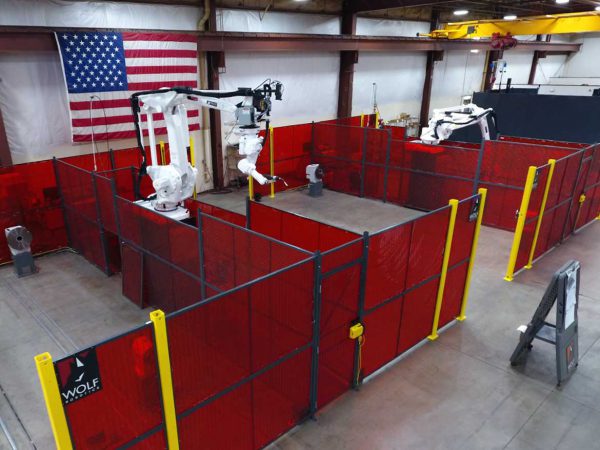FIRST, CONSIDER IF AUTOMATION IS REALLY RIGHT FOR YOUR NEEDS.
The trend toward automation is accelerating rapidly as businesses all over the world realize it’s a necessity in order to remain competitive, but is robotic automation right for your processes? Before you jump into automation, it’s important to consider whether or not your process and parts are suitable for robotic automation:
- Do the parts go together the same all the time? Accurate, repeatable part designs
- Are the parts the same sizes? No gaps, poor fit-up or poor joint access
If you can answer yes to these questions, or even if you are unsure, the next step is identifying an external expert in the process – selecting the right integrator.
SELECTING AN EXPERT ROBOTIC INTEGRATOR THAT’S RIGHT FOR YOUR NEEDSThere are many factors to consider before deciding which integrator can best meet your needs. Begin by doing research on companies that are very knowledgeable about the process, and include those that also have inside stakeholders with the same expertise. This could include a Certified Welding Inspector (CWI), a weld engineer or someone with a higher level of welding knowledge. Trade ShowsAttend industry trade shows to talk with different integration companies and equipment manufacturers the integrators are using to determine their expertise. Trade shows are convenient because you can schedule appointments with several integrators at one location. InternetUse the internet to learn as much as possible about the various companies. Review their websites to learn about not only their products, but also their financial stability and what projects they have done. It’s important to know that the integrator you choose will be there to help you in the future. Trade AssociationsThe Robotic Industries Association (RIA) is an excellent resource for additional information about the skills of an integrator. You can find a listing of RIA Integrators at www.robotics.org. Trade JournalsResearch what information has been published about the companies. Is it positive? Is their expertise in your process and not just automation? A lot of integrators specialize in robotics, but do not necessarily have the process knowledge. | |
REFINE YOUR SEARCH
Determine their location
Where the integrator is located is important in your selection process. Having a company with the ability to respond quickly across multiple boundaries is important. If something goes wrong, you want a company with the ability to act fast.
If you are a global company, or if you are planning to expand internationally, does the integrator have the ability to service you globally? Knowing that you can go to the same integrator to get the same integrated product anywhere in the world offers many advantages. You will have commonality of parts, standardized programming and the ability to have the system serviced by the same company no matter where you are located.
Conduct a site visit
Visit the integrator to see what equipment they have on their floor. What exactly are they integrating? Can they customize a solution to meet your exact needs? Ask questions about their business and their expertise to help determine if they have the ability to meet your specific needs. Find out what level of training, onsite support and programming support they provide.
Check references
Be sure to talk to their customers/references who have a similar process or application. If they are welding a material similar to what you use, it doesn’t matter if they are in a different industry. Ask these customers about their experiences with the integrator. Are they satisfied with their work, their ability to service their system and the training/support they provided?
CONCLUSION
Selecting the right integrator for your robotic welding system is important to ensure you are working with a company that can not only provide the right cell for your process, but is also an expert in your process and provides excellent service and training.

